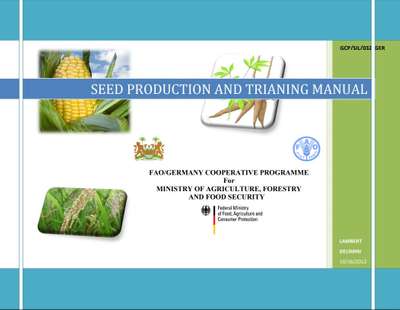
Plant breeding activities lead to the development and release of improved crop varieties. The purpose of releasing improved crop varieties is to increase productivity and overall crop production to anchor food security. Food security is achievable through mass utilization of varieties which are high yielding, resistant/tolerant to pests and disease pressures, ecologically suitable, tolerance to drought and soil mineral toxicity. To further the goal of varietal releases, farmers must have access to and benefits from the use of varieties through agricultural intensification where improved seed is backed by good agronomy, fertilizers and pesticides application under conservation agriculture.
Dissemination of improved crop varieties to famers under the formal sector is generally channeled through seed systems, institutions and agencies. There are different types of seed development and certification systems the choice of which may depend on national agricultural and seed policies, level of development of the national seed industry and the financial status of farmers. Each system has its goals and objectives to accomplish. The different seed systems vary from seed projects, parastatal organizations, private companies, to public/private/partnership enterprises. Each level depends on the national agricultural development agenda and the objectives to achieve.
Publication Details
- Published: 2012
- Publisher: FAO/GERMANY COOPERATIVE PROGRAMME